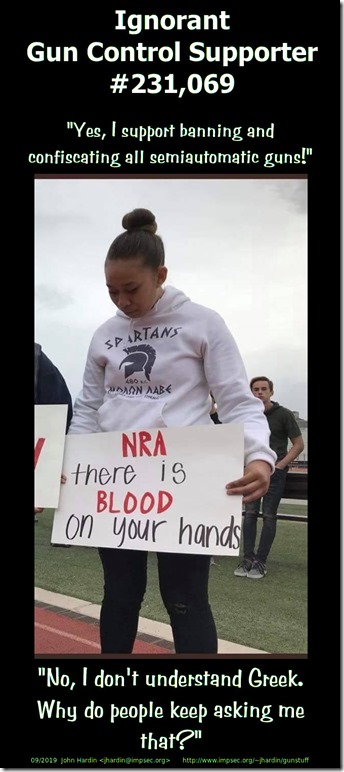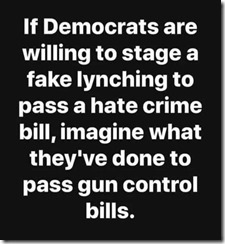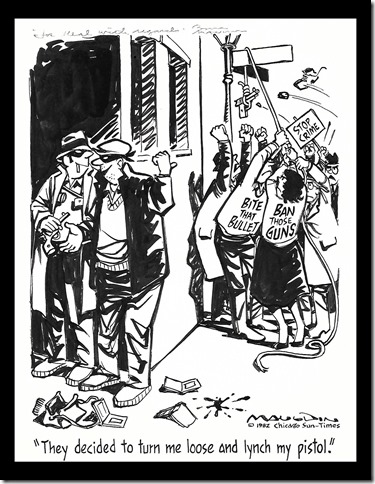Eventually, the president will overreach, signing an order for gun confiscation, euphemistically called, “mandatory buybacks.” Antifa and their ilk will flood the streets in support of seizing these “weapons of war.” Media will declare, “It’s the will of the people.”
And for the right, that will be the last straw (plastic or paper).
The left doesn’t understand that every gun owner is a single-issue-voter; millions will refuse to give up their guns. And, many gun owners in this country will not go “meekly into the night,” there will be “rage” against what they will see as a usurpation of their constitutional rights.
William L. Gensert
September 13, 2019
No Matter Who Wins in 2020, There Will Be Blood
[Via Matthew Bracken @Matt_Bracken.
He describes plausible scenarios. Prepare accordingly.—Joe]






